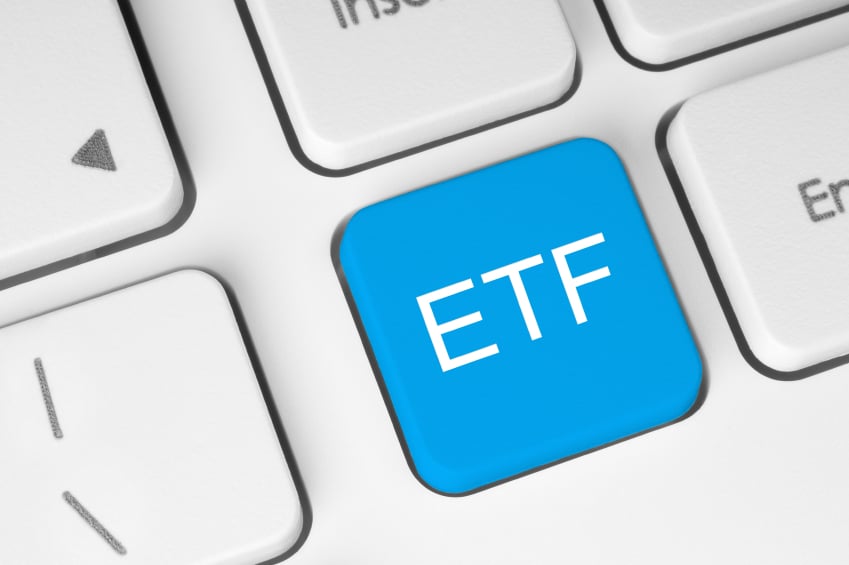

Wrapping up three days at the Inside ETFs conference in Hollywood, Fla., the one product missing from the product-centric event has been nontransparent exchange-traded funds.
Not that nontransparent ETFs weren’t discussed extensively, but the expectation that one or more asset managers would be announcing actual launches of the unique new funds to coincide with the annual ETF show failed to pan out.
Fun fact: There's a near-unanimous consensus that American Century will be the first to market with a nontransparent ETF by mid-February, but that is to be considered pure rumor for now.
Debate flourished around the ETFs that some are calling “ANTs,” for active and nontransparent. We’ll see if the acronym catches on.
In the meantime, financial advisers should bone up on where fund companies are heading with their various versions of ANTs, and what that could mean to clients.
For example, as Douglas Yones, head of exchange-traded products at the New York Stock Exchange, pointed out, if an ANT can show any advantage over the mutual fund from which it was cloned, advisers will have a fiduciary responsibility to choose it over the mutual fund.
ANTs are also expected to have various impacts on the distribution system, not the least of which would be the global expansion of access to mutual fund strategies to anyone with a brokerage account.
While it’s too early to accurately gauge advisers' interest in ANTs, there is no doubt that fund companies are headed in their direction, in a move that looks more defensive than anything else.
“There is growing acceptance among traditional active managers that clients are preferring to get exposure through the ETF wrapper, and they’re trying to chase that,” said Mark Carver, global head of factor index products at MSCI.
To get some perspective on the growing acceptance of ETFs, consider that, last year, ETFs experienced $326 billion in net inflows while mutual funds experienced $94 billion in net outflows.
Over the past decade, as total ETF assets grew to $5 trillion from $1 trillion, the ETF industry has attracted $2.6 trillion, while the mutual fund industry has lost $186 billion.
The main driver, according to ETF gurus Dave Nadig, chief investment officer at ETF Trends; and Matt Hougan, chairman of Inside ETFs, is the focus on fees.
“The race to zero is now standard," Mr. Nadig said. "It’s hitting everything, and it doesn’t seem to be letting up.”
“Hidden fees are the new black in investing,” Mr. Hougan said. “When everything is free you become the product.”
Talk of fees hit a crescendo during a session featuring Joshua Brown, chief executive at Ritholtz Wealth Management; and Nina O’Neal, partner and adviser at Archer Investment Management.
During a discussion about moving the financial advice business model away from fees based on assets under management, Mr. Brown was adamant that it is a nonissue.
“The friction over fees is in the media and not in the real world,” he said. “Clients are trying to find someone they can trust, who they like. They don’t question why their lawyer gets paid, or why their accountant gets paid.”
Regarding the issue of pegging investment performance to advisory fees, Ms. O’Neal said clients understand the service is holistic.
“You have to do both well, investment management and all the planning things,” she said. “We talk about how their financial success is tied to our revenues. We have a vested interest in their performance.”
If asset-based fees are going away, it will be a slow grind, according to Mr. Hougan of Inside ETFs.
“Moving away from asset-based fees will cost advisers a lot of money because right now they’re getting an imbedded annual raise of about 7% based on average market returns,” he said. “Asset-based fees are stickier because people love paying fees in ways they don’t feel.”
And, finally, no ETF conference recap would be complete without giving an example of where the money is heading these days.
Enter the Amplify BlackSwan Growth & Treasury Core ETF (SWAN), which signals growing skittishness among investors and advisers.
The fund has attracted $160 million since it was launched 14 months ago on the premise that “advisers are more nervous than their clients,” said Christian Magoon, chief executive at Amplify ETFs.
With a portfolio made up of 90% U.S. Treasuries and 10% S&P 500 Index options, BlackSwan returned a very respectable 22% last year, which compares to 30% for the S&P. That's not a bad return for a defensive allocation.
Next up: the Orlando for TD Ameritrade’s LINC confab. Stay tuned.

Relationships are key to our business but advisors are often slow to engage in specific activities designed to foster them.

Whichever path you go down, act now while you're still in control.

Pro-bitcoin professionals, however, say the cryptocurrency has ushered in change.

“LPL has evolved significantly over the last decade and still wants to scale up,” says one industry executive.

Survey findings from the Nationwide Retirement Institute offers pearls of planning wisdom from 60- to 65-year-olds, as well as insights into concerns.
Streamline your outreach with Aidentified's AI-driven solutions
This season’s market volatility: Positioning for rate relief, income growth and the AI rebound
